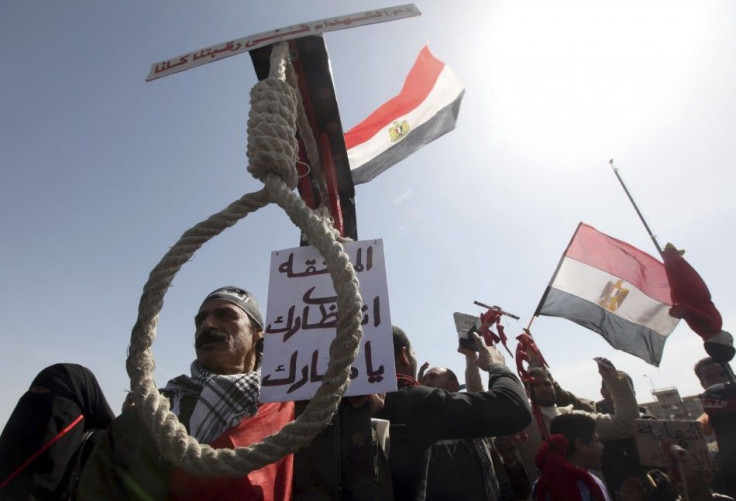Egyptian Court Will Unveil Mubarak Ruling on June 2

Following a six-month long trial of former Egyptian President Hosni Mubarak, Judge Ahmed Rifat announced on Wednesday that he will deliver a verdict and sentencing on June 2.
The decision will also be broadcast on live television, the judge said.
Mubarak is charged with ordering the killing of protesters during the popular uprising that ultimately resulted in his resignation last February. More than 800 people died during the 18 days of unrest that preceded Mubarak's exit. The security forces were largely held responsible for the deaths.
Mubarak did not accept an offer to speak to the court, only saying, I have no comment. What the lawyer said is enough.
Former Interior Minister Habib al-Adly, one of Mubarak's co-defendants and former feared head of his security forces, addressed the court for almost two hours, Egyptian state news reports.
I reaffirm before you that there were foreign saboteurs who desecrated Egypt's pure land and were supported by internal criminal elements with the aim of undermining Egypt's international and regional standing and attempting to destabilize its political, security and economic stability, the Associated Press quoted al-Adly as saying.
The defendants also include six high-ranking police officers.
In his closing argument, chief prosecutor Mustafa Suleiman told the judge that this is not a case about the killing of one or 10 or 20 civilians, but a case of an entire nation.
The prosecution says that it amassed testimonies from 2,000 witnesses and police officers during the course of its investigation.
However, prosecutors also argued that they was not able to access key evidence such as call logs from the interior ministry, the BBC reported.
The prosecution asks that Mubarak receive the death penalty if convicted.
The defense maintains that Mubarak was not responsible for the mass killings since he transferred power to the army after imposing a curfew on Jan. 28, 2011 Defense lawyers also claim that Mubarak is still president, and as such, can only be tried for treason.
Some in Egypt argue the trial's conclusion is long overdue, and criticized the current military government for impeding the justice for those killed in the uprising.
Mubarak's two sons, Gamal and Alaa, and former Mubarak associate Hussein Salem are standing trial separately on charges of corruption.
© Copyright IBTimes 2024. All rights reserved.











